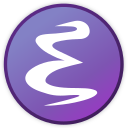Unleashing Your Code: Top Syntaxic Alternatives for Enhanced Text Editing
Syntaxic has long been a go-to choice for developers and writers seeking a keyboard-friendly text editor across Windows, Mac, and Linux. Its unique features like incremental search, symbolic completion, and robust error catching make it a powerful tool. However, for various reasons – perhaps you're looking for a different feature set, a more active community, or simply a fresh interface – exploring a Syntaxic alternative can significantly enhance your workflow. This article delves into the best alternatives available, helping you find the perfect fit for your coding and writing needs.
Top Syntaxic Alternatives
Whether you prioritize lightweight performance, extensive plugin ecosystems, or specific language support, there's a Syntaxic alternative out there for you. We've compiled a list of top contenders that offer compelling features and user experiences.

Notepad++
Notepad++ is a free, open-source text and source code editor for Windows. As a fantastic Syntaxic alternative, it offers a lightweight experience with features like code formatting, a tabbed interface, custom language definitions, and extensive plugin support, making it highly extensible for various programming tasks. It's a solid choice for those seeking a fast, no-frills editor.

Atom
Atom is an extensible, cross-platform text editor that runs on Mac, Windows, and Linux. This open-source editor, built on Electron, stands out as a strong Syntaxic alternative due to its rich ecosystem of plugins and themes, deep Git integration, collaborative writing features via Teletype, and excellent customizability, allowing users to tailor it precisely to their preferences.

Sublime Text
Sublime Text is a sophisticated commercial text editor available for Mac, Windows, and Linux. It's an excellent Syntaxic alternative known for its slick user interface, extraordinary features like multiple cursors, highly efficient Package Control for extensibility, and robust syntax highlighting across various languages, providing a premium editing experience.

Vim
Vim ("Vi IMproved") is a highly configurable and extensible free, open-source text editor for Mac, Windows, and Linux. As a powerful Syntaxic alternative, Vim is renowned for its keyboard-focused operation, modal editing, extensive plugin ecosystem, and advanced features like syntax highlighting and word completion, making it a favorite among power users and developers who prefer a command-line interface.

Eclipse
Eclipse is a free and open-source integrated development environment (IDE) available for Mac, Windows, and Linux. While more feature-rich than a simple text editor, Eclipse serves as a robust Syntaxic alternative, especially for Java developers, offering extensive extensibility via plugins, a powerful debugger, refactoring tools, and deep integration for various programming languages like Python, PHP, and Ruby.

Geany
Geany is a small, lightweight, and fast integrated development environment (IDE) that is free and open-source, available across Mac, Windows, and Linux. It makes for a compelling Syntaxic alternative, particularly for those seeking a minimalistic IDE with excellent syntax highlighting, a built-in terminal, code navigation, and extensive customizability.

gedit
gedit is the official text editor of the GNOME desktop environment, providing a free and open-source solution for Mac, Windows, and Linux. As a lightweight Syntaxic alternative, gedit offers solid syntax highlighting, autocompletion, and extensibility through plugins, making it suitable for general programming and text editing tasks.

GNU nano
GNU nano is a small, user-friendly, free, and open-source text editor primarily designed for the command line interface, available on Mac, Windows, and Linux. For users who appreciate Syntaxic's keyboard-friendly nature and operate frequently within the terminal, nano provides a straightforward Syntaxic alternative with interactive search and replace, and automatic indentation.

GNU Emacs
GNU Emacs is an exceptionally extensible and customizable free, open-source text editor available for Mac, Windows, and Linux. Often considered a full-fledged IDE, Emacs serves as a powerful Syntaxic alternative, featuring an interpreter for Emacs Lisp, extensive plugin support, cross-platform compatibility, and robust syntax highlighting, appealing to users who desire deep customization and control over their editing environment.

Kate
Kate is a free and open-source text editor that's part of the KDE project, available for Mac, Windows, and Linux. It offers a strong Syntaxic alternative with its advanced editing component, built-in terminal, code formatting, file management, and excellent syntax highlighting across various languages, making it a versatile tool for developers and writers.
Choosing the right Syntaxic alternative ultimately depends on your individual needs and preferences. Whether you prioritize a lightweight editor, extensive customization, or integrated development features, the options above provide a wide range of choices. We encourage you to explore these alternatives and find the perfect text editor that seamlessly integrates into your workflow and boosts your productivity.